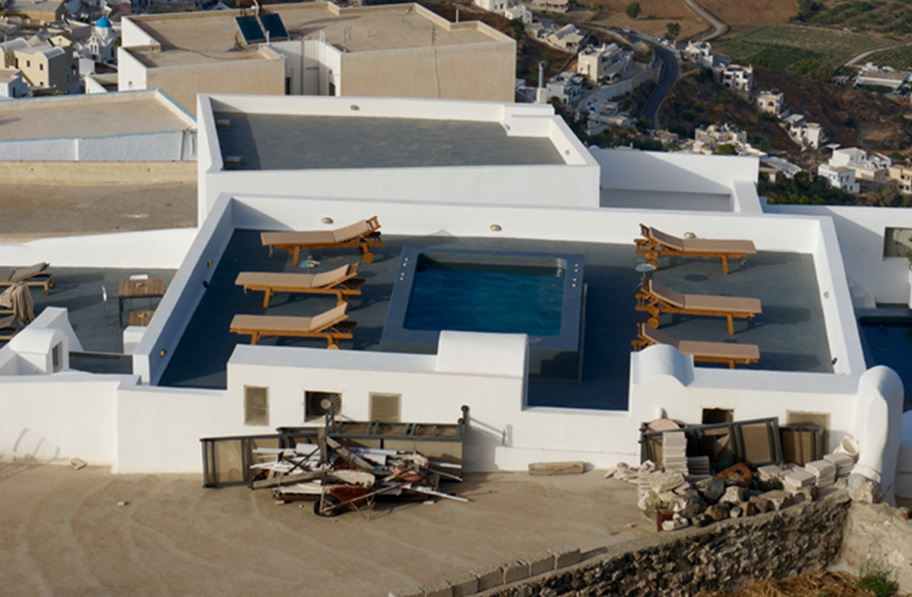Communities on islands with mass-tourism, like Santorini, rely on vast quantities of water to develop the local economy. Today’s inhabitants of Santorini have largely abandoned the traditional cisterns that were used to sustain the island’s pre-modern civilizations in favor of water obtained from energy-intensive desalinization, ship deliveries, and well withdrawals.
In June of 2016, Cornell University researchers worked with the Water and Sewage Authority of Thera (DEYATH) to assess the viability of improving sustainability and water efficiency by restoring traditional rainwater harvesting and storage cisterns.
The team surveyed five cisterns, held meetings with water authority staff and mayoral leadership, conducted interviews with local tourism stakeholders, and coordinated with Global Water Partnership-Mediterranean.
One conclusion was that cisterns could be rehabilitated as decentralized storage reservoirs and integrated into the island’s centralized water systems, or alternatively, serve as educational and cultural spaces used to communicate the importance of water to residents and tourists.
The research findings highlight how multi-stakeholder partnerships could assist local authorities with developing new water management initiatives to foster more sustainable and resilient models of tourism development.

